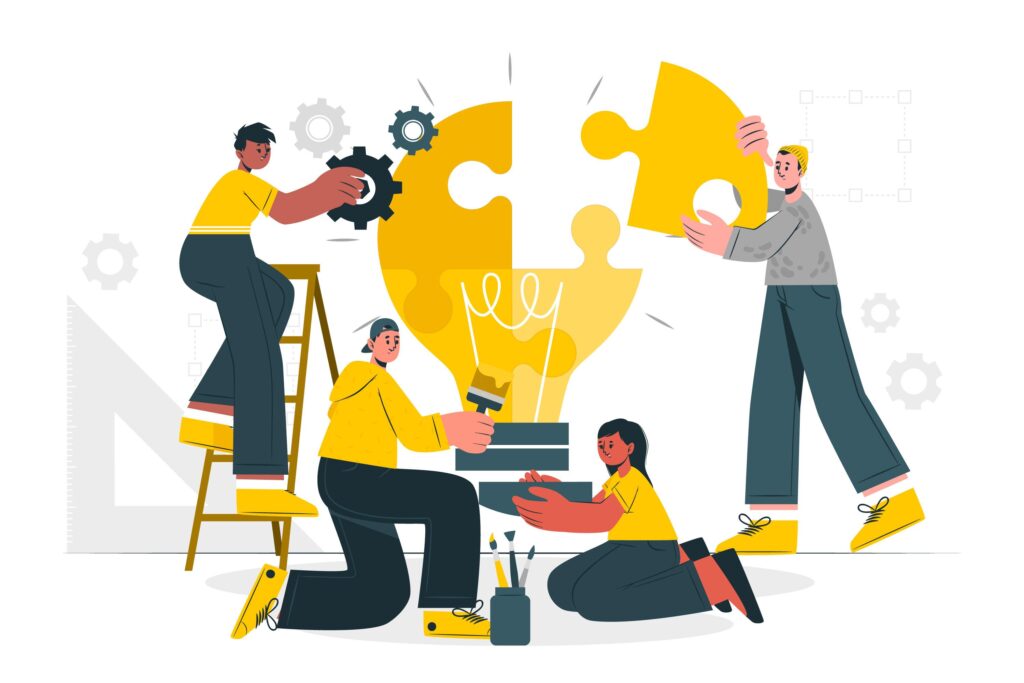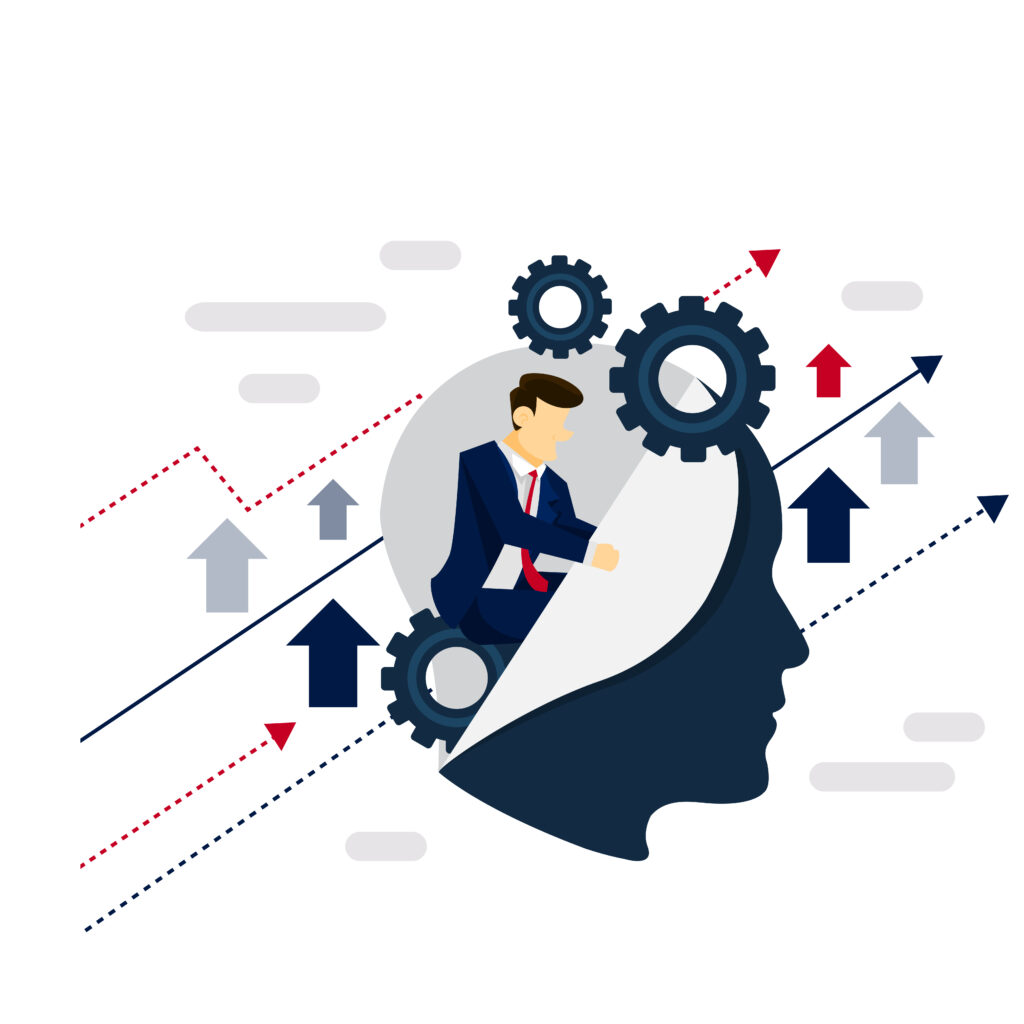Imagine a tech start-up navigating the intense pressure of launching a ground-breaking app. The team is composed of software developers, graphic designers, and project managers, each with distinct roles but a shared goal. Suddenly, a critical challenge arises: integrating a new feature that requires both coding prowess and creative design input. The project manager, usually focused on logistics, steps in to offer strategic insights based on their previous experience with user interfaces. A designer uses their problem-solving skills to suggest innovative solutions. The developers apply their technical knowledge to execute the plan seamlessly. In this moment, the team’s success hinges on their transferable skills — capabilities that transcend their specific job titles and contribute to a unified objective.

Transferable skills are the versatile competencies that individuals bring to various roles and industries. These include technical abilities like data analysis or programming, as well as interpersonal skills such as leadership and communication. As workplaces evolve and industries shift, the ability to adapt and apply these skills across different contexts becomes increasingly valuable.
In this blog, we will explore the concept of transferable skills and their critical role in team development. We will discuss how recognizing and leveraging these skills can enhance team dynamics, foster innovation, and drive overall success.
Understanding Transferable Skills
Transferable skills are versatile abilities and knowledge that can be applied across various roles, industries, and contexts. Unlike specific technical skills that may be unique to a particular job or industry, transferable skills are broadly applicable and valuable in diverse situations. These skills enable individuals to adapt to new roles, tackle challenges, and contribute to different aspects of organizational success.
Types of Transferable Skills: Technical vs. Interpersonal
- Technical Skills:
Technical transferable skills refer to specialized knowledge and expertise that, while often related to specific tasks or industries, can be applied in various settings. These skills include:- Data Analysis: Proficiency in analyzing data and generating insights is valuable across sectors such as finance, marketing, and technology. A data analyst in a retail environment can use their skills to optimize inventory management, just as a data scientist in healthcare can leverage similar techniques to improve patient outcomes.
- Project Management: Skills in planning, coordinating, and executing projects are applicable in multiple industries. A project manager with experience in construction can adapt their skills to manage projects in IT, healthcare, or any other field requiring structured project execution.
- Technical Proficiency: Expertise in software development, digital tools, or engineering principles can be applied across different sectors. A software developer’s coding skills are relevant in tech startups, financial services, and even entertainment industries.
- Interpersonal Skills:
Interpersonal transferable skills pertain to how individuals interact with others and manage relationships. These skills are crucial in virtually every professional setting and include:- Communication: Effective verbal and written communication skills are essential for success in roles ranging from sales and marketing to team leadership and customer support. A strong communicator can articulate ideas clearly, negotiate effectively, and build positive relationships with clients and colleagues.
- Leadership: Leadership skills, such as the ability to inspire and guide teams, are transferable across different job functions and industries. A leader’s capacity to motivate, delegate tasks, and drive team performance is valuable whether they are managing a non-profit organization, a tech team, or a corporate department.
- Problem-Solving: The ability to identify, analyse, and resolve problems is a core transferable skill. Whether tackling technical challenges, operational issues, or strategic dilemmas, problem-solving skills enable individuals to devise effective solutions and contribute to organizational success.
A LinkedIn survey found that 92% of talent professionals believe that soft skills, which are often transferable , are equally or more important than hard skills.
Leveraging Transferable Skills in Team Development
Identifying and Assessing Transferable Skills
Effectively leveraging transferable skills can significantly enhance team development, fostering a more adaptable, innovative, and high-performing workforce. To unlock the potential of these versatile skills, organizations must implement strategic approaches to identify and assess them.
Top Skills to Prioritize in Hiring:
- Communication
- Adaptability
- Problem-solving
- Leadership
- Time management
- Collaboration
Key Strategies to Leverage These Skills in Teams
- Conduct Comprehensive Skill Inventories:
Begin by creating a detailed inventory of the skills possessed by your team members. This involves mapping out both the technical and interpersonal skills that employees have developed through their current and previous roles. Tools like employee self-assessments, peer reviews, and manager evaluations can be instrumental in this process. For instance, using surveys or questionnaires that ask employees to list their skills and provide examples of how they’ve applied them can yield valuable insights. - Utilize Skills Assessment Tools:
Implementing specialized skills assessment tools can provide a structured and objective evaluation of transferable skills. Platforms like PerspectAI offer game-based assessments designed to evaluate both technical and interpersonal skills in an engaging way. These assessments can reveal hidden talents and skill areas that might not be immediately apparent through traditional methods. - Encourage Cross-Training and Job Rotation:
Cross-training and job rotation programs allow employees to gain experience in different roles within the organization. This exposure not only broadens their skill set but also helps in identifying transferable skills that can be applied in various contexts. By rotating employees through different departments or roles, you can better understand their adaptability and how their skills translate across different functions. - Foster a Culture of Continuous Learning:
Creating a culture that values and supports continuous learning encourages employees to develop and refine their transferable skills. Offer training programs, workshops, and learning resources that focus on both technical and soft skills. Encourage employees to pursue certifications or courses that enhance their versatility and applicability in various roles. - Leverage Performance Reviews and Career Development Plans:
Use performance reviews and career development discussions to identify and assess transferable skills. During these evaluations, discuss employees’ career aspirations and how their skills align with potential future roles. This approach not only helps in recognizing transferable skills but also supports career progression and employee engagement. - Incorporate Skills Mapping and Gap Analysis:
Skills mapping involves visualizing the skills within your organization and aligning them with current and future business needs. Conduct a skills gap analysis to identify where transferable skills can fill gaps or address emerging needs. This strategic approach helps in aligning team capabilities with organizational goals.
According to a report by the World Economic Forum, over 50% of employees will need to reskill by 2025 due to advancements in technology and evolving job roles. Transferable skills like critical thinking, creativity, and adaptability are crucial for successful reskilling and career progression.
| Challenges in Identifying Transferable Skills | |
| 1. | Lack of structured assessments |
| 2. | Underutilization of existing talent |
| 3. | Misalignment between job descriptions and candidate capabilities |
| 4. | Overemphasis on hard skills |

Why Transferable Skills Matter
Having a workforce with diverse transferrable skills is crucial for building a resilient and adaptable team. Employees with broad skill sets can easily transition between roles, collaborate across departments, and take on new challenges, enhancing overall flexibility and agility within the organization. This diversity of skills fosters creativity, problem-solving, and innovation, as team members bring varied perspectives and experiences to the table.
In terms of team dynamics, transferable skills strengthen collaboration by encouraging effective communication, leadership, and adaptability. These skills enhance overall productivity by enabling employees to work seamlessly in different capacities, ensuring that projects are executed efficiently even in times of change or disruption. This leads to improved performance, quicker decision-making, and a more cohesive work environment.
Ready to unlock the full potential of your team through transferable skills? Start building a more adaptable and high-performing workforce today with PerspectAI’s game-based assessments. Discover hidden talents, bridge skill gaps, and drive your team’s success.